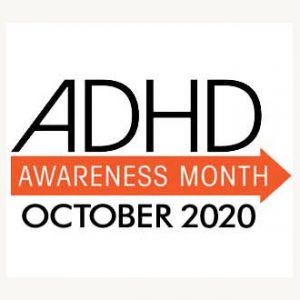Category: General Psychology
Holidays and Family Estrangement
 Family estrangement refers to the loss of a former relationship between parents and children, siblings or other extended family members. Holidays are times when this estrangement can lead to anxiousness, PTS and other conditions. Estrangement reflects physical or emotional distancing and minimal contact or communication for an extended period. It can result from many things: physical, sexual, verbal, child or elder abuse, neglect, divorce, trauma, money, inheritances, substance abuse or something else. When people are estranged from their parents, their feelings may often be complicated. There may be a mix of relief, grief, sadness or anger. Often they see the decision to cut ties with that family member as a life-saving measure.
Family estrangement refers to the loss of a former relationship between parents and children, siblings or other extended family members. Holidays are times when this estrangement can lead to anxiousness, PTS and other conditions. Estrangement reflects physical or emotional distancing and minimal contact or communication for an extended period. It can result from many things: physical, sexual, verbal, child or elder abuse, neglect, divorce, trauma, money, inheritances, substance abuse or something else. When people are estranged from their parents, their feelings may often be complicated. There may be a mix of relief, grief, sadness or anger. Often they see the decision to cut ties with that family member as a life-saving measure.
Estrangement: An example
One young man I’ve worked with was sexually abused for 5 years as a  child by his older, schizophrenic brother after his father died. When he finally told someone at his school, the Department of Social Services intervened. He was moved to his aunt’s house where he lived until graduation. Since he has no contact with that brother who currently lives with their mother, he also has no communication with her. This is a choice he made for his own mental health. He believes his mother chose his brother’s well-being over his own. In order to move on with his life and cultivate healthier relationships, he needed to sever their communication. He still deals with his traumatic past when memories arise periodically, but he’s been able to find a loving partner and create his own family.
child by his older, schizophrenic brother after his father died. When he finally told someone at his school, the Department of Social Services intervened. He was moved to his aunt’s house where he lived until graduation. Since he has no contact with that brother who currently lives with their mother, he also has no communication with her. This is a choice he made for his own mental health. He believes his mother chose his brother’s well-being over his own. In order to move on with his life and cultivate healthier relationships, he needed to sever their communication. He still deals with his traumatic past when memories arise periodically, but he’s been able to find a loving partner and create his own family.
How to manage the holidays with estranged family members
If you decide to see estranged family members over the holidays, it’s critical to establish clear, firm boundaries about your contact. Consider emailing in advance. Let et them know what you don’t want to discuss and what you do. Often these visits can be very triggering and activate old wounds.
If you feel afraid that the contact will not be safe for you, it’s okay not to push yourself.
Ask yourself these questions if you choose to interact:
-
-
 How long can I actually spend with this person before I start to feel overwhelmed or uncomfortable?
How long can I actually spend with this person before I start to feel overwhelmed or uncomfortable?- What is my safety plan for when I am triggered?
- Who is my ally in this situation? What is my plan for checking in with them throughout the gathering?
- How can I appropriately leave when I need to and where will I go?
- Who will help me process this experience when it’s over just in case I need that?
-
Whether you choose to connect with an estranged family member or not, check in with yourself. This has been a hard year, make sure you aren’t putting more on your shoulders than you can handle this year.
Read more blog posts:
- Family, Forgiveness and ADHD: Loving and letting go, during and beyond the holiday season
- Plan Now for A Happier Family Holiday Season
- Gratitude in an Age of Uncertainty
Source: Span, P. (2020, September 10). The causes of estrangement, and how families heal. The New York Times. Retrieved December 20, 2021, from https://www.nytimes.com/2020/09/10/well/family/family-estrangement.html
22 News Mass Appeal: Tips on Beating Pandemic Boredom
22 News Mass Appeal: Tips to Make Online Learning Easier
How ADHD Is Diagnosed
This content is excerpted from HealthCentral on How ADHD Is Diagnosed. I am one of the panel experts, along with Russell A. Barkley, Ph.D.Clinical Professor of Psychiatry and Rosemarie Manfredi, Psy.D. Licensed Psychologist and Certified School Psychologist Let’s Talk About How ADHD Is Diagnosed How ADHD Is Diagnosed. There’s no single test that can determine if you or your child has ADHD, but we’ll help you get the answers you’re seeking. First, What Exactly Is ADHD?
How ADHD Is Diagnosed. There’s no single test that can determine if you or your child has ADHD, but we’ll help you get the answers you’re seeking. First, What Exactly Is ADHD?
- Inattention (wandering off task, loss of focus, disorganization)
- Hyperactivity (being in constant motion)
- Impulsivity (acting or speaking without thinking)
People with ADHD may have one of these signs or symptoms, or a combination. Most kids have the type of ADHD that’s a combo of symptoms. More than 6 million children have been diagnosed with ADHD. Roughly 11 million people, or 5 percent of the adult population, have it, too according to a 2016 report from the Centers for Disease Control and Prevention (CDC).
Who Diagnoses ADHD?
ADHD can’t be diagnosed based on a 15-minute checkup. A proper ADHD diagnosis involves interviews with the person and their parents or other loved ones—and teachers, if applicable. There are checklists, observations, official questionnaires and a medical evaluation, too. Before calling on a trained ADHD expert, know this: Only medical professionals, like physicians and nurse practitioners, can perform a thorough physical evaluation to rule out other possible medical causes of ADHD-like symptoms. As part of a complete check-up, you or your child should get a vision and hearing test. Your physician may also screen for brain injuries, such as a concussion, and look for an underlying seizure or sleep disorder. In rare cases, individuals with ADHD-like symptoms may have thyroid dysfunction. If this is suspected, a blood panel may be ordered. At the same time, other conditions can masquerade as—or coexist with—ADHD. These include:
- Developmental delays
- Autistic spectrum disorder
- Learning disabilities
- Anxiety
- Depression
- Trauma
- Bipolar disorder
- Obsessive-compulsive disorder
According to the American Academy of Pediatrics, the majority of children diagnosed with ADHD also meet the diagnostic criteria for another mental health disorder. These types of issues are normally screened for during the next step of the ADHD diagnosis process: The comprehensive evaluation (also called a comprehensive assessment).
Read more in HealthCentral for information on:
Where Can I Get an Evaluation?
What’s a Comprehensive Evaluation for ADHD?
The Diagnostic Interview
Standardized Behavior Rating Scales
Interview With VIPs
DSM-5 Symptom Checklists
Are There Other Tests for ADHD?
What About School Evaluations?
What Are the Chances of a “False Positive” or a Misdiagnosis?
FREQUENTLY ASKED QUESTIONS about ADHD Diagnosis
Read the HealthCentral Article
Additional Resources:
https://drsharonsaline.com/2020/10/02/video-going-back-to-school-w-dr-sharon-saline-debbie-reber/




